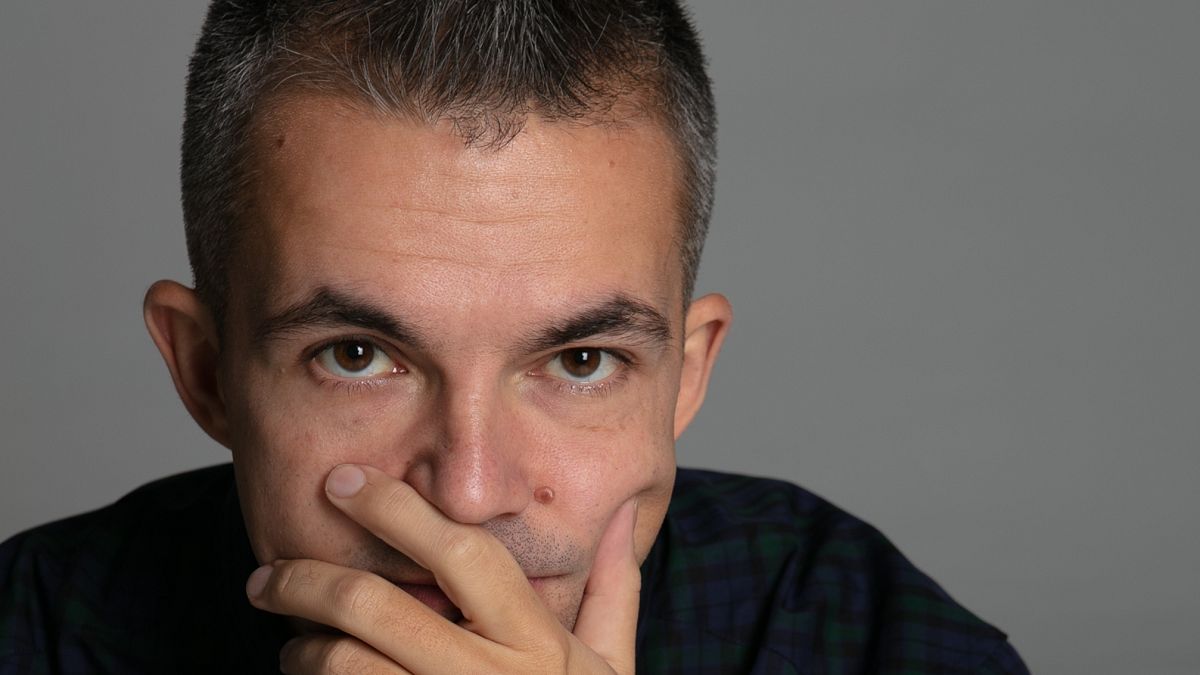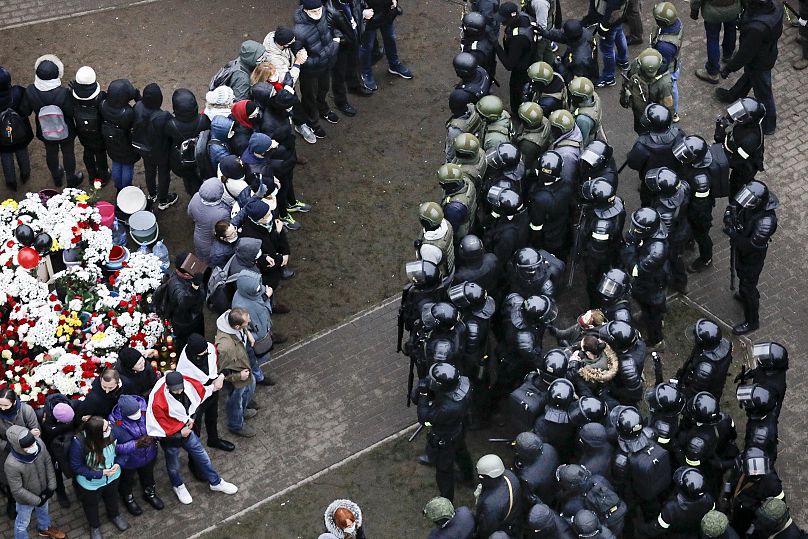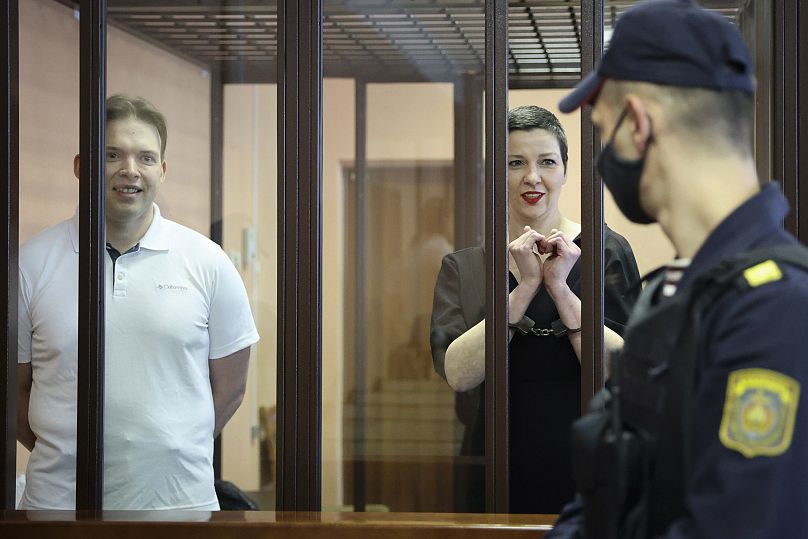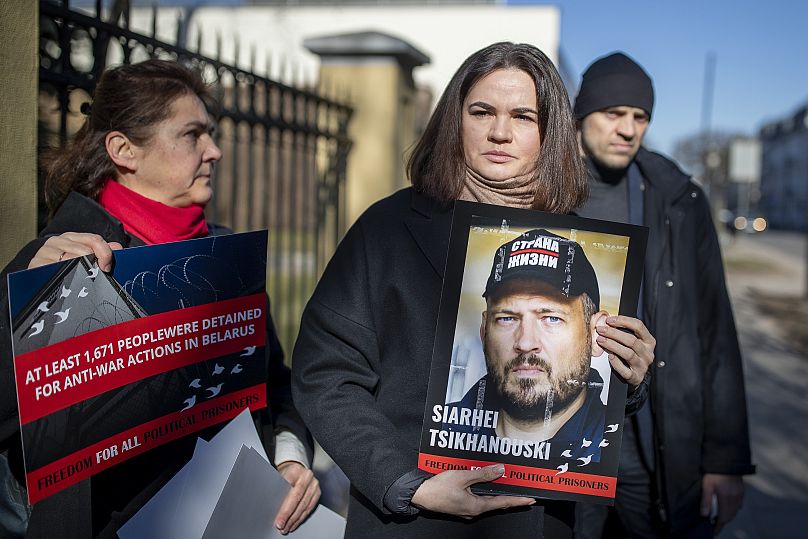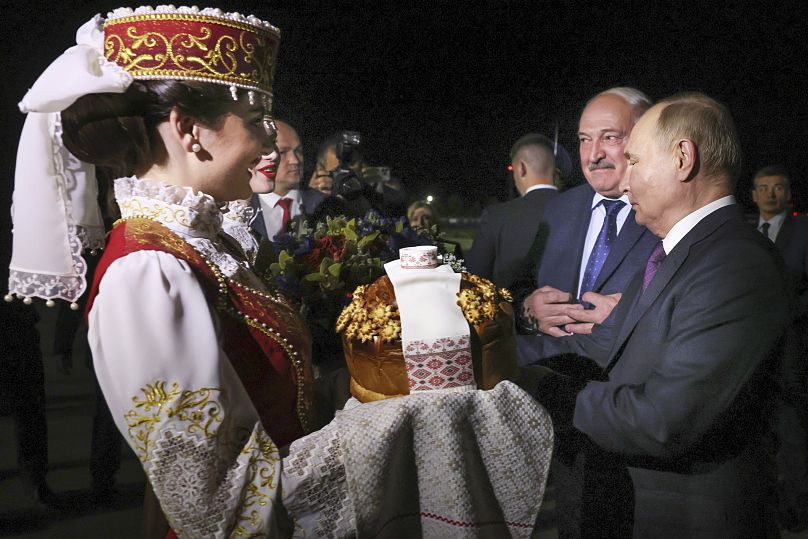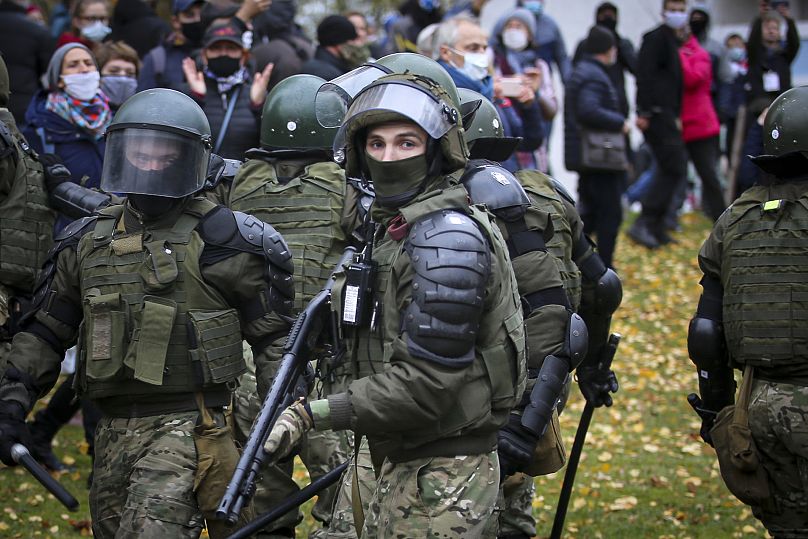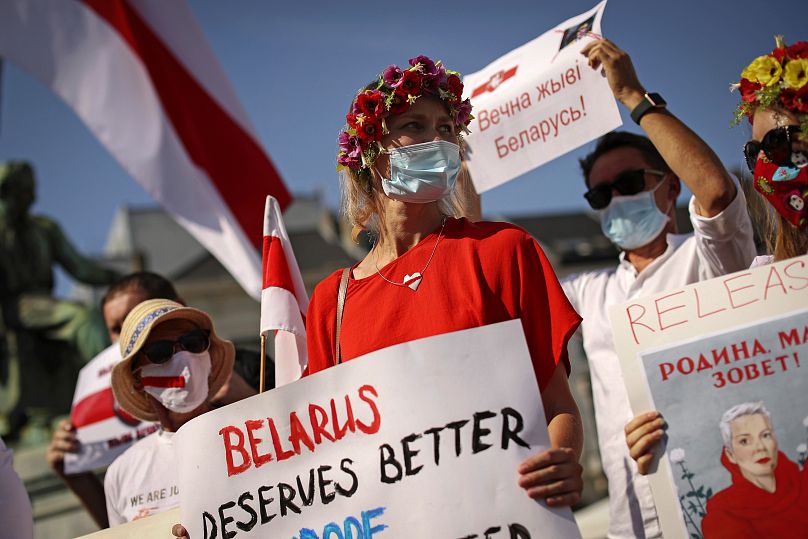Super Poll Q&A: Is EU-wide conservative coalition losing momentum?
The Euronews Super Polls foresee an election victory for the EPP, unprecedented growth for the ultraconservatives, and a slight increase for the socialists. Data suggest that crafting the future ruling coalition could turn out to be a political conundrum.
According to the Euronews Super Polls, one thing looks certain: after the 6-9 June elections, the European Parliament will have a clear right-wing majority.
Furthermore, the forces of the conservative camp — from the centre-right to the far-right — will have to overcome deep rifts and contradictions among each other to craft a functional alliance.
Meanwhile, the conservative groups will hardly be able to join their forces in one strong coalition.
Socialist parties have been slightly and steadily growing for three months, while the liberal-democrats of Renew are on a fast-declining path.
Finally, here is a bit of trivia rather than political data: the only countries where the far right is expected to have a meaningless showing are Cyprus, Luxembourg and Malta.
We asked Boyd Wagner, chief analyst of the Euronews Polls Centre, to help us better understand the results of our latest Super Poll in nine representative EU countries.
Euronews: In Germany, the union's largest economy, the Christian Democrats (CDU) are steadily leading the opinion polls. How do you comment on this?
Wagner: The EPP (European People's Party) will continue to get its biggest boost from the German coalition, the German group, the CDU, and the CSU (German and Bavarian Christian Democrats, respectively).
We project them to be at about 30%. They should break the 30% threshold in Germany next week. And that should be a big boom for the EPP group.
Euronews: The far-right party Alternative for Germany seems to be losing some of its appeal to the German electorate and could be outpaced by the Social Democrats (SPD) as the second party. Is this due to the recent scandals and accusations against some of its members of being Russian influence agents and the declarations of sympathy to the SS by the head of the party's European Parliament electoral list, Maximilian Krah?
Wagner: We might see a greater impact when the people go to vote in a week or so, in Germany, that the SS scandal has a greater impact. it's really going to be probably the SS scandal because of the fact that it keeps them out of the (far-right) Identity and Democracy group in the European Parliament. So, just the reverberation of that scandal is going to have an effect on everything that is going to play out in the long term.
Euronews: In France, the landslide victory of Jordan Bardella, from Marine Le Pen's National Rally, is a foregone conclusion. The gripping race is for the second position between two staunch pro-EU candidates, the Renaissance's Valérie Hayer and the Socialist Party's Raphaël Glucksman. Isn't it?
Wagner: You can see the Socialist party in France really making big-time gains on Rennaisance's heels. I think that is going to become their bigger concern for Macron and the group. I think that the Renaissance cannot afford to be looking at trying to make sure that they're getting closer to the National Rally at this time; they need to make sure that they stay in the strong second place and don't let the socialists come at their heels"
Euronews: Is Glucksman's Socialist Party a real threat to the so-called "presidential majority" both in France and Europe?
Wagner: Rennaisance shouldn't let the socialists come at their heels, as they're doing right now, just with a little bit more than a week ahead of the election, as we kind of track these last set of numbers on a two-week bit on the two-week basis before we had. The Macron list is at 16.6%, and the Socialists are at just under 14%. So we're now inching very, very, very close between those two parties right now.
Euronews: Italy is the other important piece of the EU's far-right ultra-conservative camp. Post-fascist Prime Minister Giorgia Meloni steadily occupies the first position. We have assisted in the past couple of weeks with a cautious rapprochement between Meloni (her party is an ECR member) and the number one of the French opposition, Le Pen (her party is affiliated with Identity and Democracy). Do you think that they could be tempted to join their forces, create a new group, and let go of the project of a "pro-von der Leyen" conservative coalition (without Le Pen)?
Wagner: I certainly don't think that PM Meloni would think that it's the death of that possibility. If we include everybody in there, and I'm going to exclude the AfD — now that they've been excluded from the Identity and Democracy group — you have 60 to 65 seats from the ID, and you're looking at over 80 seats from the ECR. That together becomes a formidable number two, potentially number two; they could be bigger than the S&D in the European Parliament. And that would mean that there is a strong right-wing that then needs to be considered.
Now, can the EPP still work with this? This is something that they're going to have to consider. And at the end of the day, just having that many seats to the right of them is not enough. Either the EPP decides to get in coalition with them or not, or they decide to form a government with them.
Either way, they're going to have to reckon with the power that is on right now because it's much more inflated than it had been previously.
Euronews: Let's move now to Spain. Looking at the Euronews Super Poll, the Partido Popular is slightly leading the polls, followed by the socialist party, PSOE. Is Spain the last bastion of the mainstream parties of the European political tradition?
Wagner: The Spanish Socialist Workers Party (PSOE) was the largest party. They are the party of government right now in Spain. We don't project them to be the winning party. But it's not like you're seeing some more right-wing party kind of coming to the fore to take that place. You're not seeing the rise of Vox as much as we might have thought.
Instead, it's kind of ending up as a fight between those two establishment parties, the Partido Popular and the PSOE. And, as we track them right now, it looks like it's going to be the Partido Popular that is going to take the lead, but it's still close to call.
As we kind of project things out, we're looking at 25 MEPs for the EPP, for the PP in Spain, and we're looking at just 20 for the PSOE and the S&P. Again, that's a very unique one.
Euronews: So, let me conclude that the EPP group will be a German-Polish-Spanish affair. What is your analysis of this?
Wagner: It's very clear that it's going to be driven by the Germans, driven by the Spanish. And, I think in third place, you probably will see the Polish. I think you're right about that. The EPP will stand to benefit from it's the Eastern flank of Europe.
I think on the eastern flank of Europe, you're seeing a lot of these more traditional parties accumulate more votes than they had before. So I think that the EPP will do better there. But at the end of the day, there are just not as many MEPs and seats in the European Parliament to be found in some of those countries. So they're really going to have to be buoyed by the Spanish, by the Germans, by the Polish.
Euronews: Romania is another interesting exercise in the fine art of political coalition design. Could the next European Parliament be inspired by the structure of the current ruling coalition in Romania?
Wagner: It certainly looks that way. We project the EPP to be the leader with about 11 members in the next European Parliament. We project the S&D to be right behind them with nine members. There's seven for the ECR. And then you have five for the Renew group.
Again, the hardest thing to track with Romania is just exactly because they're running for their own national parliament elections as well.
Euronews: I would move to the Netherlands. Are they going to confirm the results of the recent national elections?
Wagner: The Netherlands is an interesting track because they had their own internal battles that they have been waging for some time, and it looks like they're coming to some conclusions there.
It does look like I think that they will be confirming their own government in due time very soon. So, as we put it right now, you're looking at nine MEPs from the Netherlands for the ID, so that's it's certainly a strong position to take on the right
Euronews: How about Belgium? They will also hold their Federal elections on the same day as the European elections.
Wagner: Belgium is always a very tough one to put the finger on. You're thinking about where we track with where members of the European Parliament are going to be sitting from Belgium. You also see again, there's a strong rise in the right, just like you see in the Netherlands next door, just like you're seeing in France next door.
It's going to be very well-proportioned. From Flanders (Dutch-speaking region), we are going to see most of the right-wing voters. Whereas in Wallonia (French-speaking region) you're going to see a stronger proportion of left voters.
Euronews: Regarding right-wingers, in Hungary, Prime Minister Viktor Orbán's ultra-conservative Fidesz party is leading the poll, yet, for the first time, a new opposition party seems to be on the rise. Could Péter Magyar's movement become a political threat to Orbán?
Wagner: We track them right now at almost 20% in the polls. That's a very strong number for a group that is not technically a united opposition. Two years ago, when Hungary had its last national parliamentary elections, they ran as a united opposition, and they were able to achieve upwards of 30% of the vote, if I recall correctly. It still didn't come close to achieving a victory over Prime Minister Orban. So 20% is not going to get them close in terms of an overall movement. I don't really see it.
I mean, we still project for (Fidesz) to get over 40% of the vote in Hungary. They will maintain their spot as a clear leader, and they should double up on anybody. When you're looking at Magyar, I think most of his voters are actually coming from some of the other former opposition or the other opposition parties.
